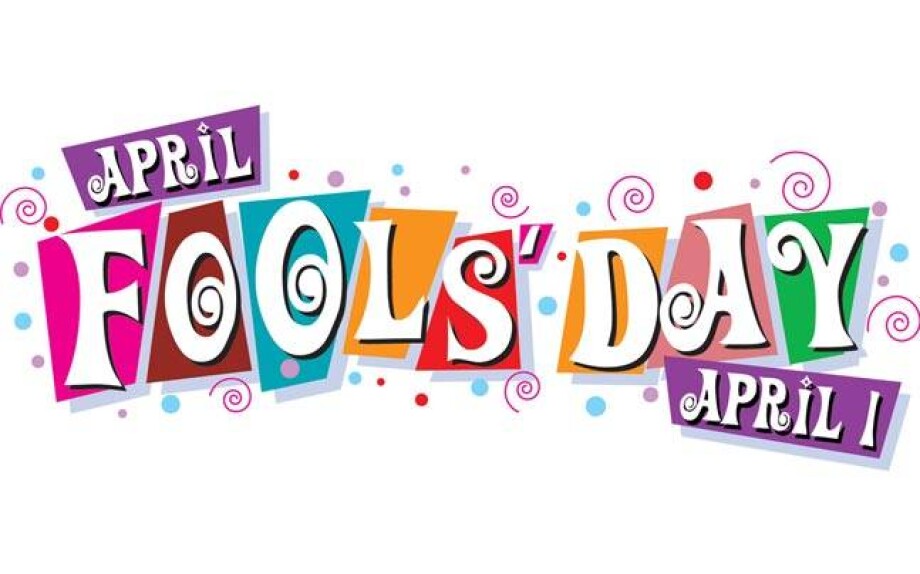Classes turn out to be effective when there is more laughter and less strictness. Humour engages your students in learning procedure thus making lessons full of interaction and positive feelings. Many experts have already proven that humour lights up students’ brain and they begin to think more clearly and effectively. So why not take advantage of it and make our lessons full of fun on the coming holiday — April Fools’ Day?
A few words about the celebration
It began in France when the French first adopted the Gregorian calendar in 1564. Some people continued to use the old calendar and to celebrate New Year’s Day on April 1. These people were called April fools. The custom of playing tricks on this day became popular in France and then spread to many other countries. The fun of this special day now is to play silly but harmless jokes on family members, co-workers, friends and why not on your students. A victim of one of these modern pranks is also called an April fool. Here are some typical pranks:
- Calling the zoo and asking to speak to Mr Crocodile;
- Putting salt in the sugar bowl;
- Setting the clocks back an hour;
- Saying to a friend: “Oh, my God. You have four big holes in your coat — buttonholes”;
- Tying a string to a wallet, leaving the wallet in the middle of the sidewalk, and then, when the victim bends down to pick it up, pulling it out of reach.
Ideas to use in the lesson
Warm — up activities:
Example 1:
Greet your teens, but don’t mention anything about the holiday. If they do not remember what day it is, you will get more chances to have fun in the lesson. Start your lesson with some tricks (this will vary depending on their age and level):
- Oh, my God, there is a big spider on your wall just behind you!
- Hello, oh I see you have some holes on your sweater, what’s that?
- What a beautiful teddy bear you have, I like it! (Your student starts to look for a teddy bear until he understands that it is just a joke).
- You know, today I was watching TV and heard some interesting news. In our country, the biggest social media will be blocked as well as the news websites and search engines. They say we will create our own Internet (like in China), there won’t be Youtube, there will be something like “Connector”, there won’t be Google or Facebook*.
When you’ve let the trick go on long enough, say to your students “April Fool!” and explain that it was a trick. Elicit the basic idea of April Fool’s day.
Example 2:
First, show a picture of penguins, tell that you’ve watched some interesting news on the BBC today. Ask your teens the following questions:
- Where do penguins usually live?
- Can they live in warm countries?
- Can they fly?
Then watch the video and ask them to check their answers. Are they surprised to find out that penguins can fly?
Tell your students they are going to watch another video, where they will find out which penguins can fly and how they can fly.
After that, ask what day it is and say “April Fool!”
Are they surprised to learn that even the BBC plays a prank on the viewers?
Example 3:


Ask your teens to look at the photos. What is strange about them? Are they real pictures or fiction? What makes you think so? What do you think the original photo is?
Before going on to work on productive skills, pay attention to some related vocabulary.
- Fool
- Hoax
- Gullible
- Play a joke (on someone)
- Prank
- Prankster
- Spoof story
- A trick that is intended to be amusing but not to cause harm or damage.
- Easily deceived or tricked.
- A person who behaves in a silly way without thinking.
- A plan to deceive someone, such as telling the passengers there is a bomb on the plane when there is not one; a trick.
- It is a story that’s not true, presented as though it were real.
- Someone who performs pranks on people.
- Do something funny to make people laugh and that another person doesn’t suspect at first.
Keys:
- — C
- — D
- — B
- — G
- — A
- — F
- — E
You can also find some online exercises here.
Speaking activities:
Example 1:
Ask your students to watch the video about Fools’ day pranks and choose their favourite ones. Have they ever had such an experience? If yes, ask them to share their stories with their classmates.
Example 2:
You can have a debate with your teens about jokes. The following questions can be useful for the discussion:
- Who is it good to play jokes on?
- Is it polite to play jokes on strangers?
- Are there any limits on Fools’ Day pranks?
- What examples of inappropriate jokes can you give?
- Have you ever tried fooling your family on April Fool’s Day?
- Do you know anyone who made a proposal on April Fool’s Day? If yes, was it a trick? Did the girl believe? How did the story end?
Listening activities:
Example 1:
Celebrities are also sometimes made April Fools. Ask your teens to watch the video (from 01:19 till 04:00) and answer the questions:
- Which is the cruellest prank in your opinion?
- How do these celebrities react to the tricks? Are they frightened?
- Which prank would you like to play on your friends?
Example 2:
Ask your students to watch the videos and decide which one is true and which is just a prank. Which video would they like to be real?
The self-driving bicycle in the Netherlands
10 Unique Animals You Won’t Believe Exist (You can choose only one part, e.g. 00:00 — 03:00). However, we do recommend to include the last animal to have fun. Just stop at the right time.
Introducing Google Wind
15 Strict Rules The Royal Kids Must Follow In Public (00:00 — 02:00)
Writing activities:
Then ask your students to think about their own April Fools’ trick. Invent a story on it. They can use the following words in their stories: childish, absurd, deception, fool’s errand, foolish, hoax, hilarious, hoodwink, make fun of, play a prank on, trick, trickery.
Have funny and effective classes!










 Маргарита Аветисян
Маргарита Аветисян 


